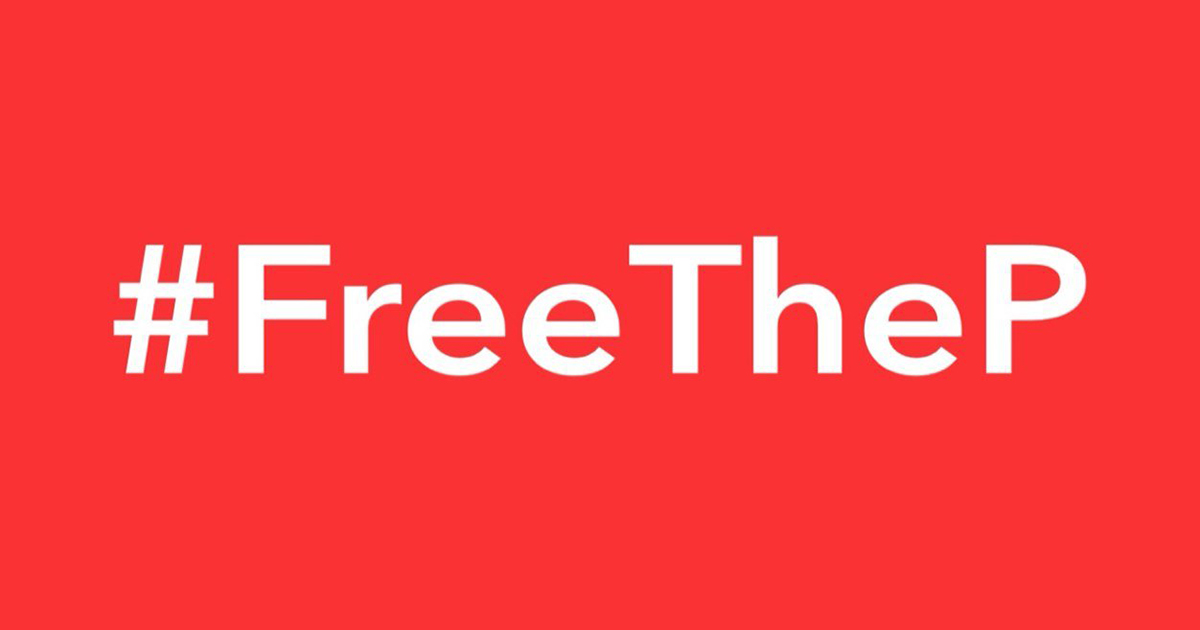FREE THE PERIOD
★ ★ ★ ★

“Social media is not about exploitation of technology, but service to community.” (Simon Mainwaring)
Tampons changed my life.
I remember it like it was yesterday. I’d just turned eighteen, I was stuck in a classroom on a hot, sunny day…and I had my period. As far as my eighteen-year-old self was concerned, life sucked and could not get much worse. Having to trudge to the shops to go and buy tampons, tummy aching, only added insult to injury—why should I have to hand over my pocket money to buy a product that I quite literally need to continue my education? I could hardly stroll into school with blood running down my leg. The only equivalent I could think of for men was razors, but even so, they don’t have quite the same level of necessity.
Then it struck me—if I, a really quite privileged young woman, was complaining that purchasing menstrual products was an unjust burden, how must all those hundreds and thousands of women and/or breadwinners below the poverty line feel about the seemingly ridiculous expense? It’s the twenty-first century—women work. They need to be able to leave the house every day of the month, not just on those they’re not on their period. Half the population menstruate – half the population therefore pay what can only be described as a ‘uterus tax’. I felt that forcing us to buy menstrual products with our (already taxed) income in order to contribute to the basic functioning of society was an outrage.
After much ranting and raging, #FreeThePeriod was born. At first it was just an idea, a petition on change.org. But I soon found that simply posting the link on Facebook and hoping for the best was not going to reel in thousands of signatures—I needed a platform where I could promote the cause cheaply and effectively, reaching as many likeminded people as possible with the resources I had.
The response was far beyond anything I anticipated. #FreeTheP is unusual in that it supports and reinforces the interests of broader causes, such as feminism, yet has the specific and achievable goal of making sanitary products free for those who cannot afford them. The page became a political refuge for the young, passionate minds who visited it and found a concrete cause to support as a stepping stone towards gender equality.
I started out just posting images or statistics which directly related to menstrual rights in the UK. That brought in a fair bit of interest, but not enough to enact the symbolic social changes I was calling for. I would message a few feminist-themed pages asking for a mention of my cause, and for them to use the hashtag #FreeTheP, and, slowly, the attention the page was receiving grew: It was a catchy slogan that echoed Free the Nipple, yet short, sweet and rolled satisfyingly off the tongue. When I started posting images with a broader feminist focus, then my support really grew. People would tag their friends in every post, get into heated debates in the comment section and spread the word in person about this cool new gender equality page that just so happened to be fighting for a specific cause. By Christmas, I had 6,000 followers. By June the following year, I had 11,000.
I’ll admit that, over the last year or so, the focus of the page has broadened from being about tampons to women’s rights in general—but this is what brings in the followers. Some might say that that’s not the point, that I shouldn’t care about how many followers I have—but in terms of online activism, how many followers you have is precisely the point—the more people who follow my account, the more people who tune in when I choose to direct their focus to something that could really make a difference.
Yesterday, I uploaded a picture onto the @freethep Instagram. Nothing extraordinary, just a pithy cartoon slamming the patriarchy. Within two hours, it had over a thousand ‘likes’ and thirty comments: people tagging their friends, expressing their agreement, or making snarky remarks about the likelihood of my single status. Nothing unusual. Within 24 hours, it had appeared on the phones of over one hundred thousand Instagram users: one hundred thousand people had now seen this cartoon that I chose to share. One hundred thousand people had at least glanced at my rambling caption and perhaps taken some of what I had to say on board. A couple of centuries ago, it would have taken weeks, if not months, for any message to reach that number of people—with my phone, I was able to achieve the same feat in a fraction of that time, and with very little effort or cost. That is the power of social media; the ability to virtually destroy geographical barriers and compress thousands of miles into the palm of your hand.
Online activism has not only enabled me to spread awareness of my own campaign, but learn more than I ever could have imagined about ingrained prejudices, social justice and ideology. Almost since its inception, the internet has been a subversive tool for anti-establishment crusaders—a platform where you don’t need money or influence, just a network connection and a strong conviction. Intertwined ideologies such as socialism and intersectional feminism are still struggling to find a place in today’s society, and as a result have made the internet their homes. Criticising the government’s attitude towards menstrual rights and equality in general makes the internet an obvious place to express such views.
Interacting with my followers on @freethep and swallowing my pride if I get called out on any problematic views has been such an eye-opening experience, I would argue that the aggressively educational nature of online activism is its greatest asset. I’ve spoken to fellow activists all over the world (and even met with a few followers in person!), written for publications, and had my world view reshaped in a way I didn’t know was possible. You learn something new every day when you’re so immersed in such a tight-knit community—it begins to filter into your everyday life whether you like it or not. Although this has undoubtedly improved my perspective for the better, I’ll be the first to admit it can get pretty tiring at social events when people know you as the “period girl”. I want to shout “I’m off duty! Leave me alone!” But in reality the internet is never off duty, and therefore neither am I—sometimes my phone is my worst enemy as well as my best friend!
So tampons have undoubtedly changed my life. They exposed me to an ideological viewpoint I had never given much thought. They put me in a position to engage with people all over the world—some of whom I would now consider my friends. Believing in something so passionately and having a thousand virtual voices echoing their agreement with every new post has boosted my confidence and taught me accountability. As unpleasant as they are, I guess I should also thank the ‘trolls’ who sink their spiteful claws into every comment section for thickening my skin and giving me something to laugh at in the mornings. The internet is an invaluable tool for those whose voices are not given notice in the ‘real’ world—the young, the anti-establishmentarian, the ‘different’. I am proud to be part of such a community.

























0 Comments